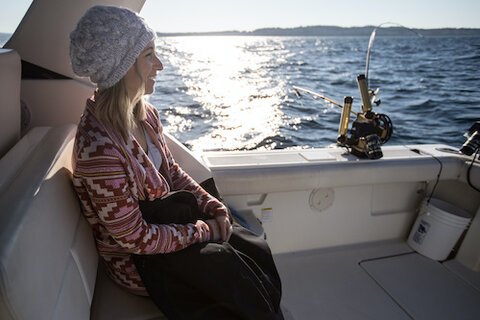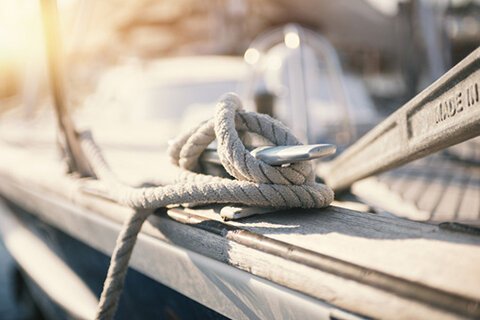While power may be coveted by politicians and academicians, many boat owners are still somewhat confused about how to get and use it. Many of the electrically powered devices and appliances we want on our boats can operate directly from 12 volt, DC battery power, however others require 120-volt, 60Hz shore power. When away from shore we can satisfy our AC power requirements from a genset (an engine driven, 120-volt AC output alternator) that converts the energy in gasoline or diesel fuel into electrical energy. If our AC power needs are more modest and the required operating time is not too long, an inverter that draws on the chemical energy stored in a battery will do the trick.
A genset will deliver as much AC power as you may need, for as long as the fuel lasts. Gensets with integral sound shields can be very quiet, especially when fitted with exhaust systems that separate cooling water from the exhaust gas, avoiding the annoying burble/splash of the conventional exhaust system. Even small gensets can supply the high in-rush current required to start air conditioners. However, gensets take up scarce space and can be costly to install. A typical genset suitable for an air conditioned 32-foot boat will cost about $4,500.
Inverters silently convert 12-volt 4DC power from a battery into 120-volt AC power, providing as much as 3,000 watts to operate microwave ovens, toasters, TV/VCR sets and other appliances. Inverters are compact, relatively light and generally easy to install. A 3000-watt inverter will cost about $1500 and an 8-D battery can run from $210-$500. Many inverters also function as battery chargers when the boat is plugged into shore power.
One major limitation is that inverters draw energy from the boat\’s batteries and even the largest batteries store only limited amounts of energy. Four of the biggest standard size marine batteries (160 pound, size 8-D,) would be needed to provide as much electrical energy as you can obtain from burning one gallon of gasoline or diesel fuel in a genset. If you are thinking of powering an air conditioner drawing 1,200 watts, plan on having one fully charged size 8-D battery on board for each hour you want to be cool.
Can an inverter provide the power you want? An inverter powering a microwave will consume between 840 and 920 watts from the battery while powering an 800-watt microwave. The typical size 27, 60-pound storage battery used on many boats can be used to power the microwave for about 25 minutes, long enough for popcorn and dinner. There are creative alternatives: Reduce the rate at which you draw energy from the battery and you can take more out before having to recharge. Do the popcorn in the microwave, cook dinner on the charcoal grill, and the inverter can power a TV and VCR consuming 150 watts for about three and a half hours. Want to cook longer or run other gadgets? Add more batteries.
If you install an inverter place it as close as possible to the battery, and connect it to the battery using proper size (LARGE) cables. Inverters that are routinely required to deliver more than about 400 watts are best powered from large size 4-D or 8-D batteries. Connecting two or more batteries in parallel when the load on the inverter exceeds about 400 watts for more than a short time will reduce the current demand on each battery, improving battery efficiency and reducing recharge time. Provide ventilation for the inverter, as they get hot when powering large loads.
Always assume that the inverter is always on when working on the electrical system. Unlike the 12 volts from the battery, the inverter\’s 120-volt output can be as unpleasant or deadly as shore power.
If the boat’s engine is running the alternator, it will supply some or perhaps all of the power consumed by the inverter, extending the permissible operating time. However, running the engine with the gear in neutral to power the alternator may ultimately damage the engine, resulting in repair costs that can exceed the cost of a genset. Also, running the engine for an extended period of time when at anchor or on a mooring will not endear you to nearby boaters who simply want to get away from it all for some peace and quiet.
Provided By:
BoatUS.com

